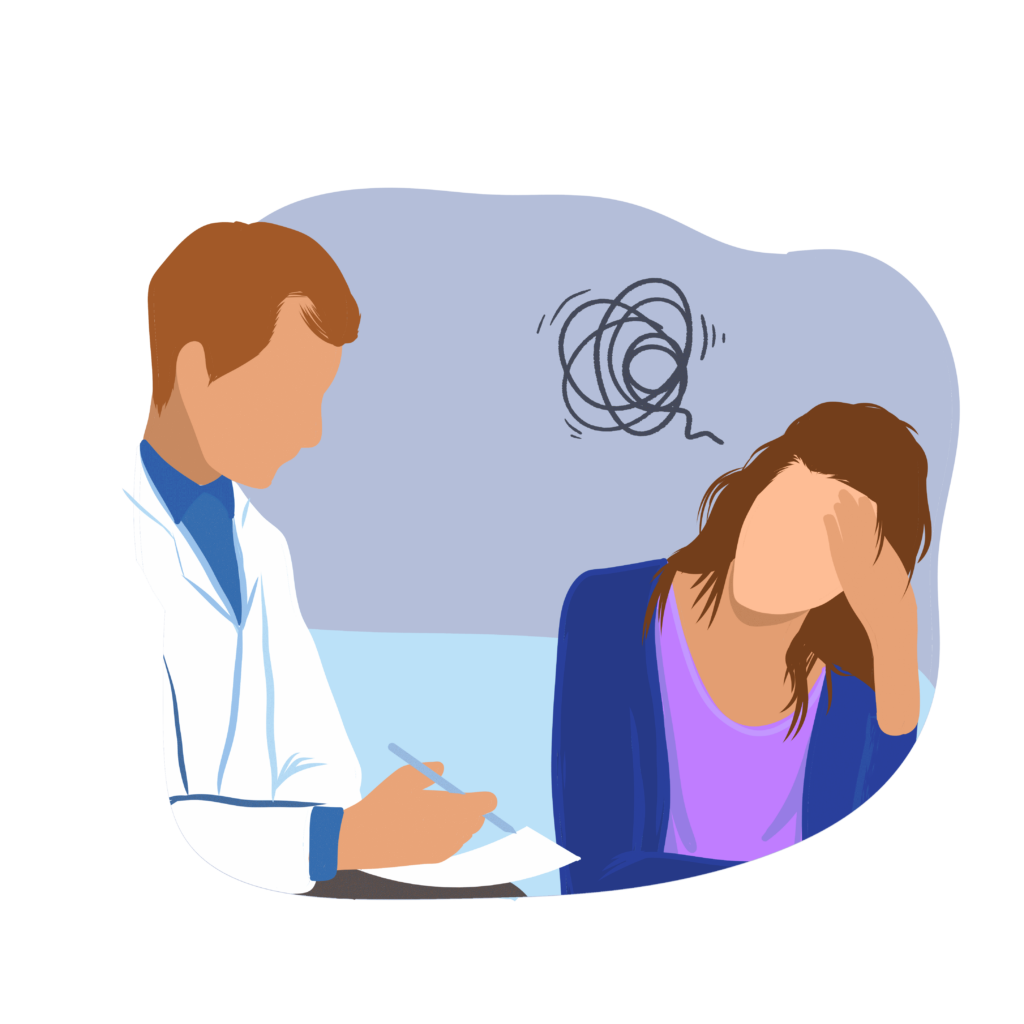Menopausal depression is one of the most prevalent psychological problems women are facing during this transitional stage. It is mainly caused by the oestrogen decline whose main function is to regulate and stabilise mood. Although hormonal fluctuation is assumed to be the main cause, factors like ageing and health concerns that play a major role in an individuals mental health must also be considered.
There are several options for treating depression during menopause but the most popular one is HRT as it also alleviates several other menopause-related symptoms but consult your doctor first to make a preliminary assessment if you are okay to take it. If you’re one of the women who’s experiencing this symptom, read on to learn more about menopausal depression.
Is Depression a Menopause-Related Symptom?
Depression is a menopausal symptom, however it is not an unavoidable aspect of the menopausal transition for all women. Hormonal changes, especially the fluctuations and eventual reduction in oestrogen levels, are principally responsible for the increase in mood disorders associated with menopause. Oestrogen is essential for mood regulation and emotional well-being.
Based on the study conducted by the Griffith University , menopausal related depression is more likely in those who have experienced serious depression in the past and vasomotor symptoms (hot flashes and night sweats). Depression and anxiety are widespread during and after menopause. Moreover, psychosocial variables may raise the chance of depression at menopause. Menopause increases susceptibility to anxiety and depression, possibly due to changes in oestrogen levels that impact neurotransmitters and serotonin.
It’s also important to remember that these effects can be worsened by common life stressors experienced by women going through menopause, such as shifting family relationships or personal health issues. Menopausal depression has multiple reasons, including hormonal changes, physical symptoms, and psychosocial variables. These causes will be discussed in more detail in the section that follows, which focuses on menopause-related depression.
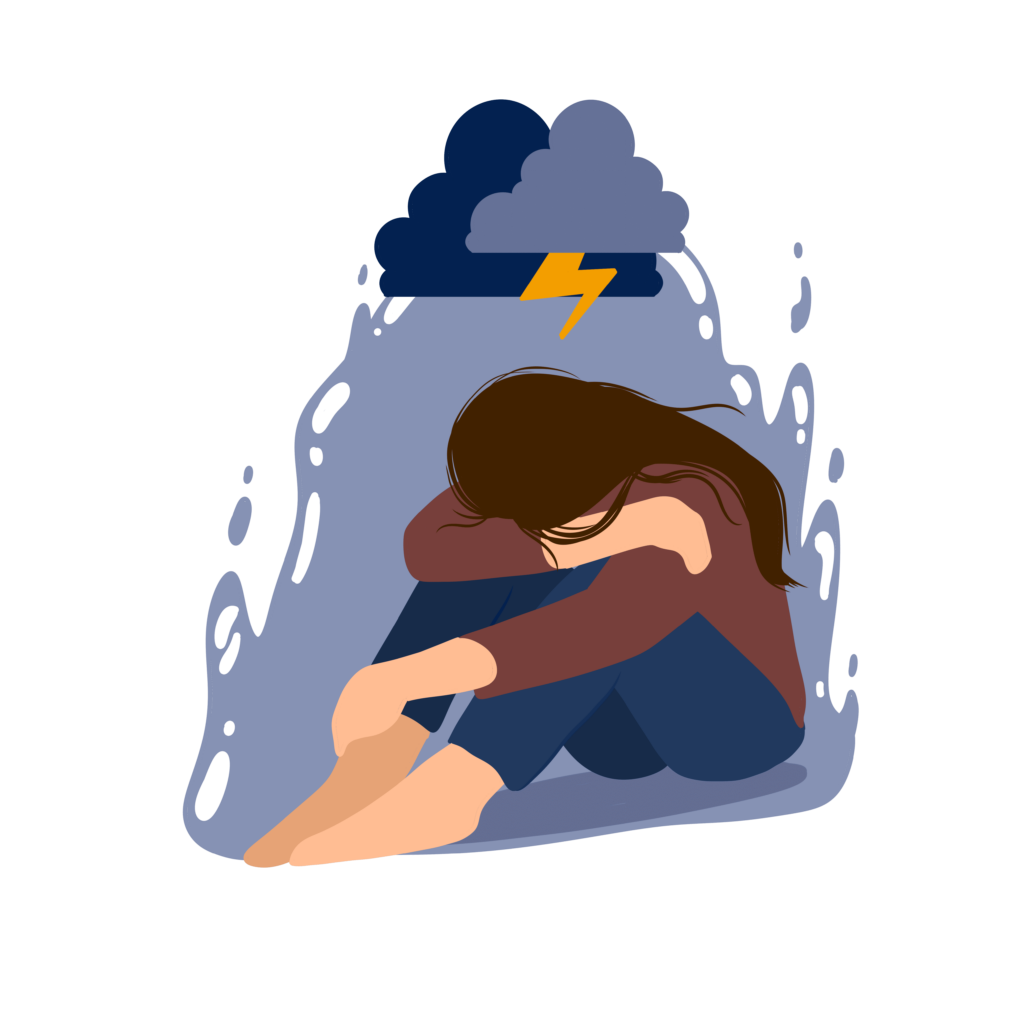
What Causes Menopausal Depression?
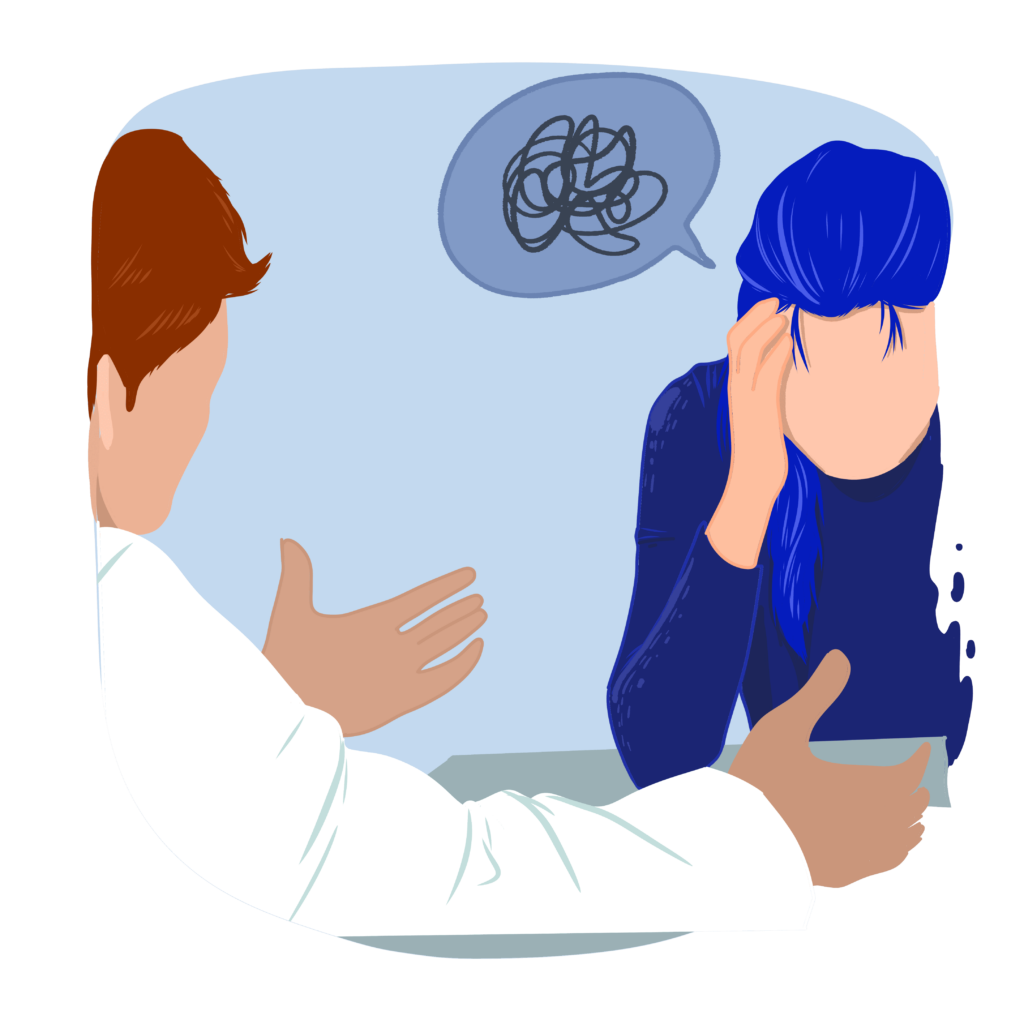
The complex relationships between hormonal changes, menopausal symptoms, and psychosocial aspects of entering menopause are the main causes of menopausal depression. The primary contributing component is the fluctuation and subsequent decrease in oestrogen levels as it is essential for controlling brain processes that impact emotional and mood states.
A study published under Sage Journals suggested that the brain’s functioning may be impacted by variations in hormone levels throughout the menopausal transition. Serotonin and neurotransmitter signalling are influenced by oestrogen, and these factors, together with changing neuronal opioids throughout menopause, have been linked to anxiety, irritability, and depression.
Menopause can occur in tandem with major life problems like ageing, health issues, or changes in family dynamics, in addition to physiological causes, which can further impact mental well-being. It’s crucial to take Hormone Replacement Therapy (HRT) into consideration when we move on to the topic of treatment alternatives. Hormonal replacement therapy (HRT) has been investigated for its potential to mitigate menopausal depression symptoms and its effectiveness in treating menopausal depression will be discussed more in the section that follows.
Can HRT Help Menopause Depression?
Hormone Replacement Therapy (HRT) helps women deal with depression throughout menopause, especially if the feeling of depression is directly related to the menopausal transition. The capability of hormone replacement therapy to regulate the erratic levels of progesterone and oestrogen—hormones intimately linked to mood regulation—makes it an effective treatment for menopausal depression.
In the study conducted by Bowling Green State University , HRT turns out to be effective in reducing depressed mood among menopausal women. It is said that hormone replacement therapy is far safer and more efficient than antidepressants in treating women with recurrent depression. This improvement is most likely owing to the action of oestrogen on neurotransmitter systems and brain areas involved in mood regulation.
It is necessary to acknowledge that hormone replacement therapy (HRT) may not be appropriate for all individuals due to associated side effects and should be evaluated in light of unique health profiles. As a result, it is essential to investigate a larger range of treatments for depression after menopause. The next section will cover a variety of therapeutic modalities, such as medication, psychotherapy, and lifestyle changes, giving a thorough review of the choices available to manage depression throughout this crucial stage of a woman’s life.
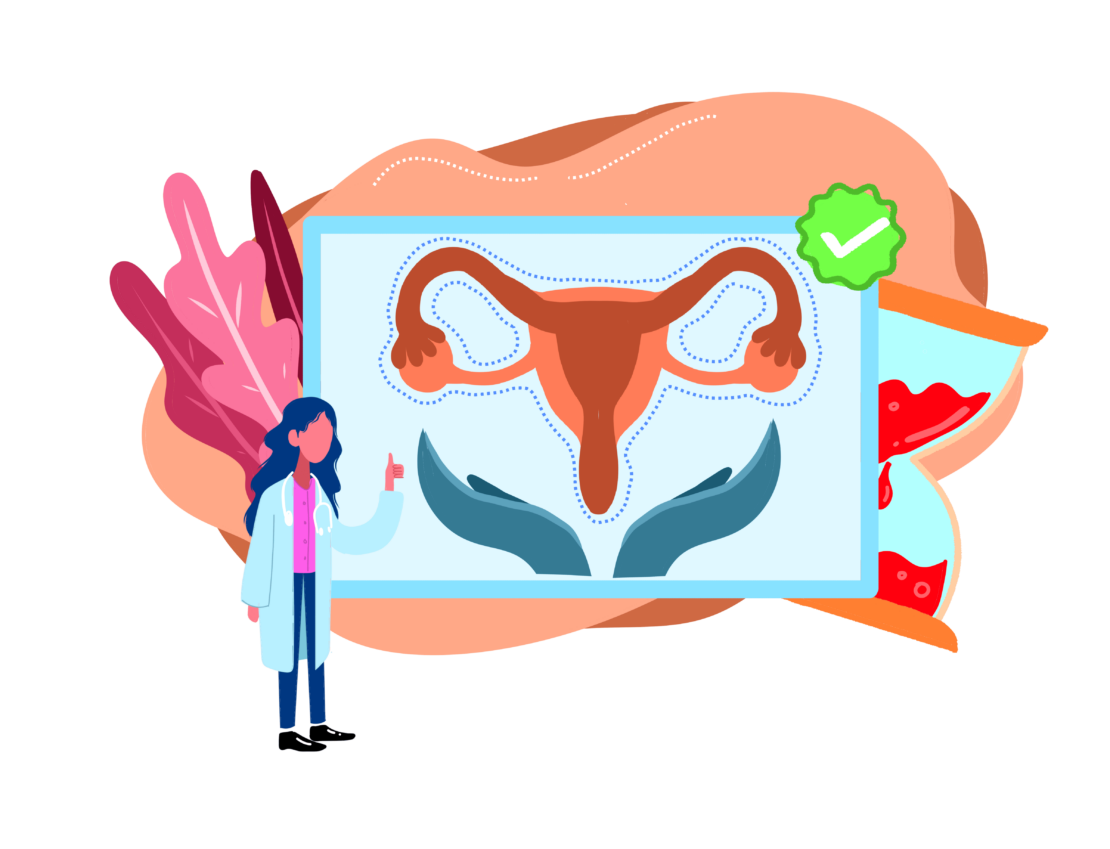
Treatment for Menopause Depression
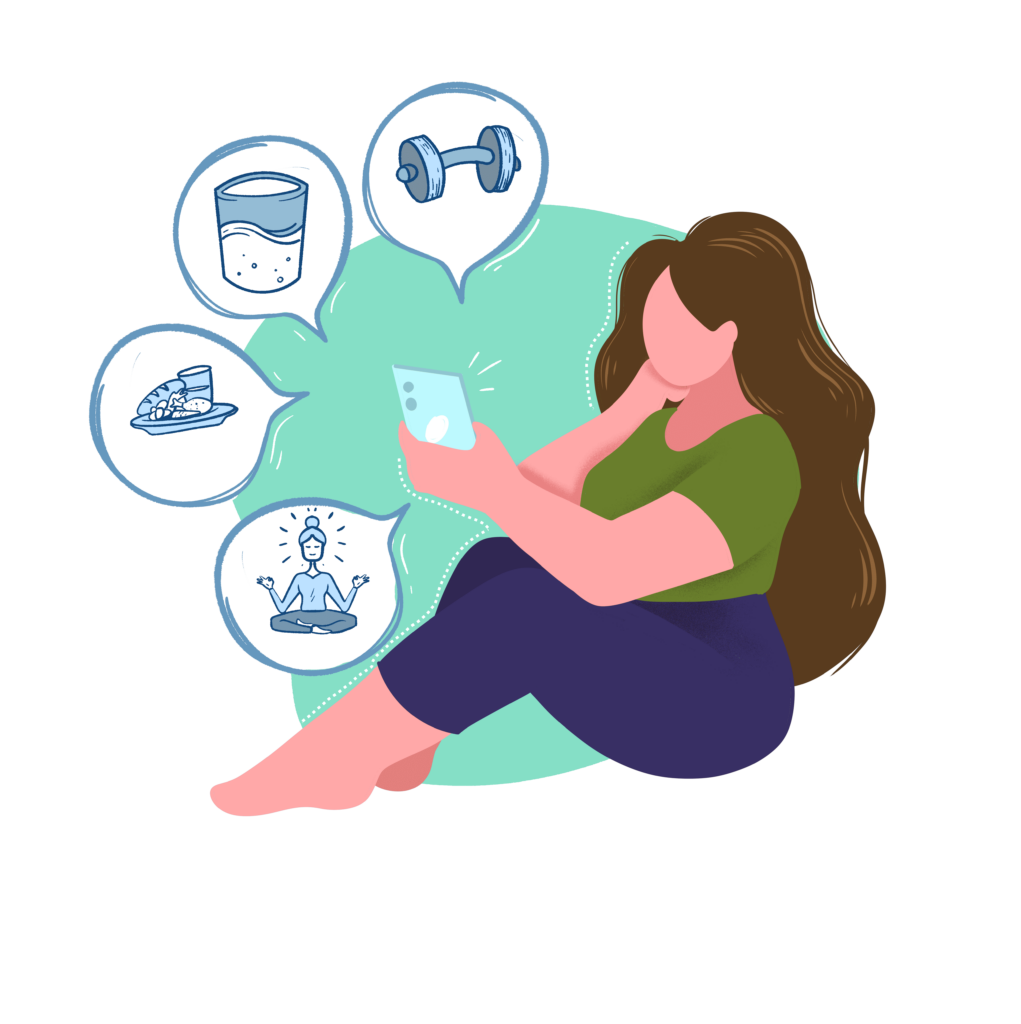
Menopause-related depression is usually treated with a combination of therapies, including psychotherapy, lifestyle modifications, and sometimes medication. It has been demonstrated that lifestyle changes including consistent exercise, a healthy diet, and enough sleep reduce depression symptoms. Let’s go over some of the best treatments for menopause-related depression.
Psychotherapy
Menopausal women who experience depression can find great relief from it through psychotherapy, also known as talking therapy. A popular kind is called cognitive-behavioural therapy, or CBT, which assists women in recognising and altering harmful ideas and behaviours that could cause them to feel depressed or worried. It is particularly helpful since it provides doable strategies for managing the fluctuations in hormones that accompany menopause.
According to the study from University of North Carolina at Greensboro , as they conducted their test, the emotions, cognitions, social functioning, and activities of the subjects all showed notable improvements after the therapy.
To put it simply, having a supportive guide is similar to receiving psychotherapy during menopause. It helps with all of the various problems and changes that come with going through menopause, not just depression or anxiety.
Antidepressants
For the treatment of depression during menopause , antidepressants may be beneficial. These medications function by restoring balance to the brain’s mood-regulating neurotransmitters. Doctors frequently prescribe SSRIs, or selective serotonin reuptake inhibitors, for menopause as these are well-liked since they often have fewer adverse effects and are safer overall.
Based on the study conducted by Amber Edinoff , et al., SSRIs are typically prescribed as the first line of treatment for depression to individuals. Even though SSRIs are the cornerstone of pharmaceutical treatment for depression, some patients need to add additional therapies, such as psychotherapy, because they do not respond to first monotherapy.
Speak with your doctor first if you’re considering medications for menopausal depression. They can assist you in determining which medication is appropriate for you as well as helping you comprehend any potential adverse effects. Recall that medication for depression is only one aspect of recovery. Other essential factors include counselling, physical activity, and adequate sleep.
Regular Exercise
Regular exercise is an excellent approach to alleviate depression during menopause. Your body releases endorphins during physical activity. These are all-natural mood enhancers that can help you feel more satisfied and at ease. Exercise can also help with other menopause symptoms including anxiety and having trouble sleeping. It doesn’t have to be particularly hard or demanding. Easy exercises like yoga, swimming, or walking can have a big impact. Even though these workouts are easy on the body, they have a great effect on elevating your energy and attitude.
Research suggests that individuals who chose regular exercise to alleviate their depression displayed significant improvement in depression and other mood-related menopause problems. Benefits from doing regular exercises are long lasting and it does not only benefit your mental but also your physical health as well.
Hormone Replacement Therapy
One effective treatment for depression during menopause is hormone replacement therapy (HRT). It is during the menopause that your body begins to produce fewer oestrogen and progesterone-related hormones and this change can cause you to feel anxious or depressed. By replenishing your body with these hormones, hormone replacement therapy (HRT) can improve your mood and overall well-being.
Consult your physician first if you’re considering taking hormone replacement therapy (HRT) for menopausal depression. They can assist you in determining whether it’s a wise choice for you. They will examine your condition, your symptoms, and the medical history of you and your family. Recall that managing depression throughout menopause frequently necessitates many approaches. In addition to HRT, items such as a healthy
When Should You Consult a Doctor?
Menopausal symptoms, such as depression should be addressed by a physician if they significantly affect your quality of life on a daily basis or if you experience a noticeable change in your emotional state. It’s essential to get guidance from professionals if these changes start to interfere with your ability to go about your everyday activities normally, if you have prolonged bouts of depression or hopelessness, or if your physical symptoms, such as hot flashes and sleep issues, become unbearable.
Our doors are always open if you need help with your menopausal related problems. The specialists at OMC have extensive experience guiding women through menopause. They can look into other possibilities, such as clinical depression, or determine if your sensations are related to menopause. We at OMC are here to help you during this difficult time, providing support and care that is suited to your individual requirements.
Make an appointment without hesitation if you’re feeling burdened.
